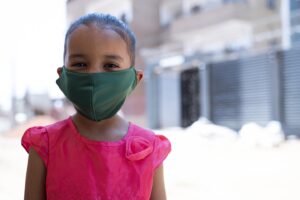The final theme that has emerged over the last two years is linked to the individual and the group. Some people have welcomed the chance to retreat – to become insular, a hermit and apart.
There was something rather wonderful about the first lockdown, despite the fear and uncertainty, the paranoia, and, the knowledge of our self-destructive nature, which was the enforced solitude and the cessation of the way life had been. The roads were empty, the birds could be heard, and no one was expected to go out or meet up. It was sanctioned separateness; permission to be introverted.
The Desert Mothers and Fathers chose reclusion giving away and pursuing religious perfection through developing a desire for austerity. More recently others have made a decision to escape from contemporary life with its monetary emphasis and spiritual emptiness. The pandemic enforced seclusion and reclusion. However, by the third lockdown in the UK it seemed harder – there was depression at the relentless feel and the never-ending emergence of new variants. Donald Winnicott, the child and adult analyst, wrote about our capacity to be alone in the sense of already having had the experience of a good relationship embedded in the psyche. The establishment of a good enough early experience provides what Winnicott calls ‘a sufficiency of living ‘so that one is able to rest contently even in the absence of external goings on. ‘Maturity and the capacity to be alone implies that the individual has had the chance through good-enough mothering to build up a belief in a benign environment.’
We can be introverted and alone and reclusive, but there is always a need for others which has its roots in infancy. Research on people placed in solitary confinement alert us to the great psychological damage that can take place. After all, we need one another to have a sense of who we are, we need a sense of ourselves in the collective. Coming out of lockdown led to a certain wariness, but there was also re-connection a reminder that we are fundamentally social and part of the collective.
The pandemic led individually and collectively to a deep sense of loss – unable to ‘carry on as normal’, to go out, attend meetings face to face, see friends and family. We were directly confronted with our mortality and vulnerability, exposed to sadness and grief with daily figures on infections and deaths. There was the loss of the illusion that in the wealthy west disasters don’t touch us – hurricanes, tsunamis, wars, and, earthquakes all happen elsewhere, but the pandemic changed that perception and increased awareness of our vulnerability. The long term effects of such experiences are still to emerge.
Two images of hermits praying in the wilderness





